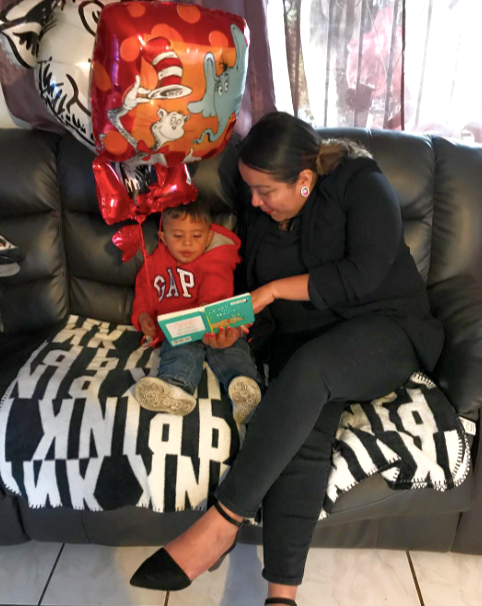Research shows that without a strong foundation in reading, children are left behind at the beginning of their education. They lag in every class, year after year. We can blame this on many factors, but we cannot ignore the fact that more than 85 percent of the curriculum is taught by reading. By the end of third grade, 74 percent of struggling readers won’t ever catch up. This is why reading proficiency by the end of 3rdgrade is often used as a predictor of whether or not a student will graduate from high school or pursue higher education.
Unfortunately, all this information is easily accessible as more and more reports continue to surface around the achievement gap and the need for us to do better. While I am a firm believer that our schooling methods need to be refreshed in order to cater to the newer generation of students, I also believe we need to educate our parents about the importance of doing their part in developing strong readers early on.
There is a saying that says “It is easier to raise a strong child rather than repair a broken man.” Perhaps the saying was referring to the whole person, but it could not ring more true to the essence of raising bookworms. We all know that while children may not be the best at following instructions or advice given to them, they are superb at following a poor example. If a parent spends most of their time looking at screens (laptop, phone, tv, etc.), they cannot expect anything different from their offspring. This is why it is so important to model reading as early as possible.
The formula is out there. We just need to utilize it. An example of this is my godson. Even before he was born, his parents made it a point to read children’s books out loud. They were new parents and were hoping to take in all the advice they were given. When he was born, this habit did not stop. They continued reading to him on a daily basis. When he began to crawl, we noticed how he naturally gravitated towards books. We took advantage of this and made books readily accessible at my house, where my mom babysat him, as well as his own. If we wanted to foster a love for books, we needed to ensure they were visible and a part of his common environments. Over time, we all made a commitment to read to him at least two books a day; often, we alternated between languages as we also wanted to ensure he grew up bilingual.
My godson recently turned two years old. On any given day, you will see him with a book in hand, flipping through the pages and recognizing the different characters in the books. He even has memorized some, making it easier for us to teach him sight words. While he is not yet reading on his own, we know he is well advanced for his age, as he can recite and recognize numbers 1-20 in English and Spanish as well as his ABCs and over 100 sight words.
I know not every child will be fortunate to have multiple adults reading to them on a daily basis or have the time to be read to in general, but it is a critical practice that needs to be prioritized. If we want to ensure our kids grow up to be confident and able to pursue their dreams, then we need to recognize that teaching them to read is a fundamental part of their upbringing. If a child can start kindergarten already knowing the basic elements, as educators, we can focus on pushing them further. The only way to combat remediation and the striking gaps is to be proactive and do something before those gaps are developed.
In a recent article published by The Guardian, all 10 children’s laureates were asked for tips on how to turn kids into bookworms. Instilling a love for reading early on through modeling was a constant for each and every one of them as they all recognized the value of raising kids who loved to read. One of these laureates put it best, “If we want children to learn, to grow by understanding and having empathy for others, to thrive, then we must encourage them to read for pleasure. Let your children see you reading. Read to them. Let them read to you. Don’t criticize what they are reading or how long it may take them.”
In our efforts to end the achievement gap and demand a quality education for all our kids, let’s also commit to stopping the cycle of illiteracy with our newer generations. If you have a child in your life, make reading a part of your shared experiences. The more time we dedicate to this cause now, the better the results will be. We must remember it is easier to raise kids who appreciate literacy than trying to compensate for a lack of reading skills in our struggling schools.
Alma Renteria
Latest posts by Alma Renteria (see all)
- Rincón Universitario: Cómo Escribir una Narrativa Auténtica para Solicitudes de Universidades, Parte 3 - October 17, 2019
- College Corner: How To Write An Authentic Narrative for College Applications, Part 3 - October 15, 2019
- Rincón Universitario: Cómo Escribir Una Narrativa Auténtica para Solicitudes Universitarias, Parte 2 - October 1, 2019
- College Corner: How To Write An Authentic Narrative for College Applications, Part 2 - September 26, 2019
- College Corner: Cómo Escribir un Relato Auténtico de Solicitudes para la Universidad, Parte 1 - September 4, 2019

